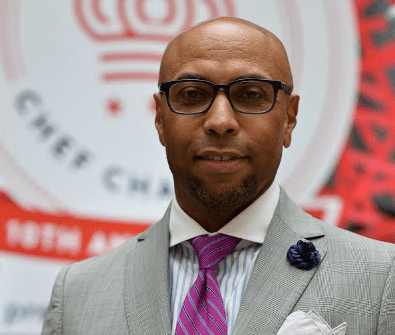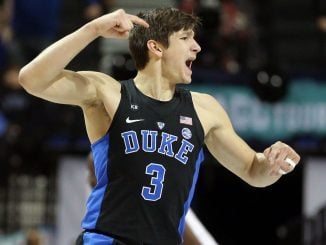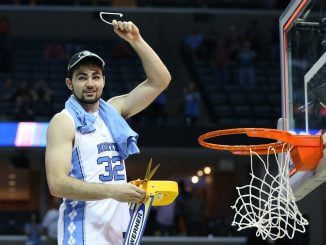
Erik Moses got into sports administration because of the industry’s “unique ability to bring people together — whether from different backgrounds, socioeconomic circumstances, political perspectives, cultures or even different countries.”
It’s a diversity that’s reflected in the Greensboro native’s resume.
His credits include negotiating the financing deal that helped bring Major League Baseball back to Washington, D.C., after a 34-year absence, helping to bring the first NCAA-sanctioned bowl game to the nation’s capital, working on board of directors of the U.S. Tennis Association’s Mid-Atlantic Section and serving as president of the D.C. Defenders of the ill-fated XFL.
This week, Moses added an even more diverse entry — in the literal sense — when he was named president of Nashville Superspeedway.
With stock car racing’s top series scheduled to return to Nashville in 2021, he becomes the first African American track president in NASCAR history.
“Anytime that you have the distinction of being the first at anything professionally, you have to recognize the significance of that fact,” Moses said in an interview with the North State Journal. “However, I’m not naive enough to believe that I’m the first person of color qualified to run a NASCAR track.
“I do believe that my background and experience in building and repositioning organizations for success in light of the very significant demands of reopening the Nashville Superspeedway for a Cup Series race in 2021 made it clear to both Dover Motorsports and me that I would be a good fit for this role.”
Moses grew up a UNC fan who lists the Tar Heels’ college basketball national championship in 1993, the year he graduated from Chapel Hill, and attending the 2005 title game in St. Louis as two of his favorite sports memories.
He later earned his law degree from Duke.

Although he never had more than just a casual interest in racing, Moses’ upbringing in the Old North State made him keenly aware of the sport’s importance to its passionate fan base. His association with NASCAR was sparked by his relationship with Mike Tatoian, the executive director of Dover Motorsports, Inc., and the president of Dover International Speedway.
The two worked together in helping to bring the Military Bowl to the D.C. area. When Tatoian took Moses to his first NASCAR race in 2019, he was hooked. More than just the action on the track, the 49-year-old lawyer was inspired by the excitement generated by the fans attending the event.
“I use the term ‘NASCAR event’ rather than just ‘race’ because that’s what each race weekend is to each track and surrounding community,” Moses said. “That’s what we’re going to do as we bring Nashville Superspeedway back to life, not only when the NASCAR Cup Series makes its debut at the track in June 2021, but with other varied events as well for Middle Tennessee residents and visitors to enjoy.”
Nashville Superspeedway is a 1.33-mile oval built in 2001. It has hosted several NASCAR-sanctioned events, along with some open-wheel competition before attracting the Cup Series back to the area for the first time since 1984.
Moses’ leadership in preparing and staging the event is especially significant considering recent events.
Earlier this year, NASCAR banned the flying of Confederate flags at its races. Then after an incident at Daytona in which a noose was discovered in the garage of Bubba Wallace, the entire sport rallied around the only black driver on the Cup circuit and increased its effort to fight racism.
Moses’ hiring is another step in the right direction, though it’s not the reason he was selected for the job.
“While I personally admire many of the positions that NASCAR has taken recently on social justice issues, I am confident that my hiring was driven by the sum total of my experience, knowledge, expertise and the positive results I have achieved in leading other organizations, especially in the sports and live events space,” he said.
“Like any successful business, NASCAR wants to constantly increase the number of people the sport reaches and expand the customer base. The actions taken by NASCAR this year, with its ban of the Confederate flag from all properties and its staunch support of Bubba Wallace signals to me the sport’s desire to welcome fans of all different backgrounds and shake off some of the negative stereotypes that may have kept certain fans and other potential fans away from the track and the sport.”



